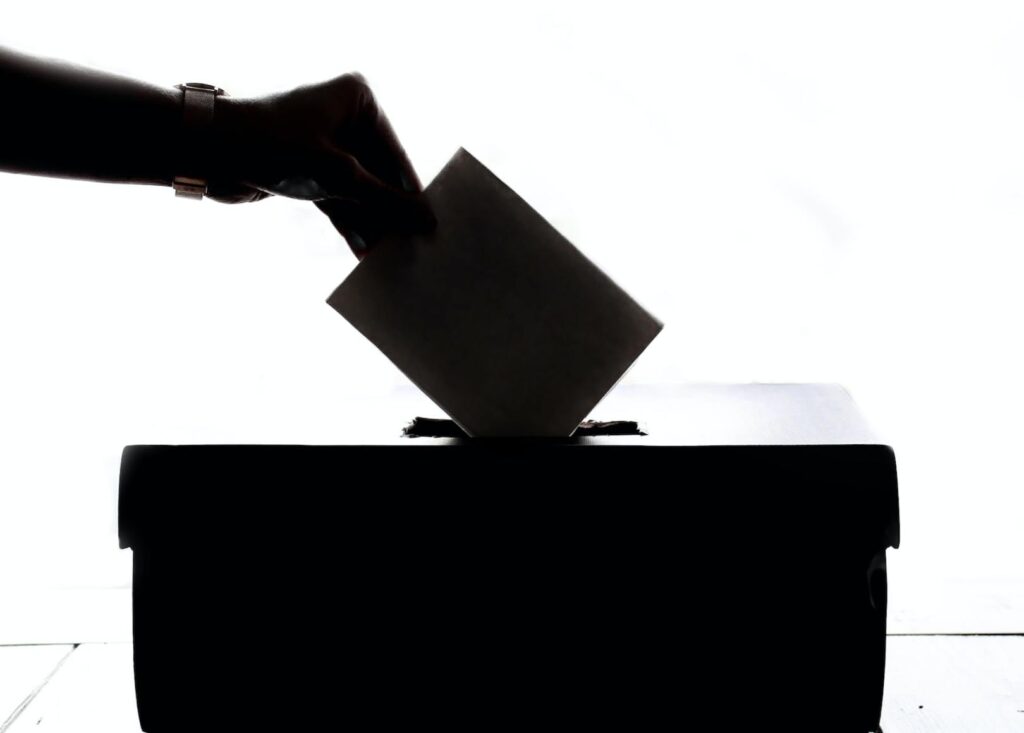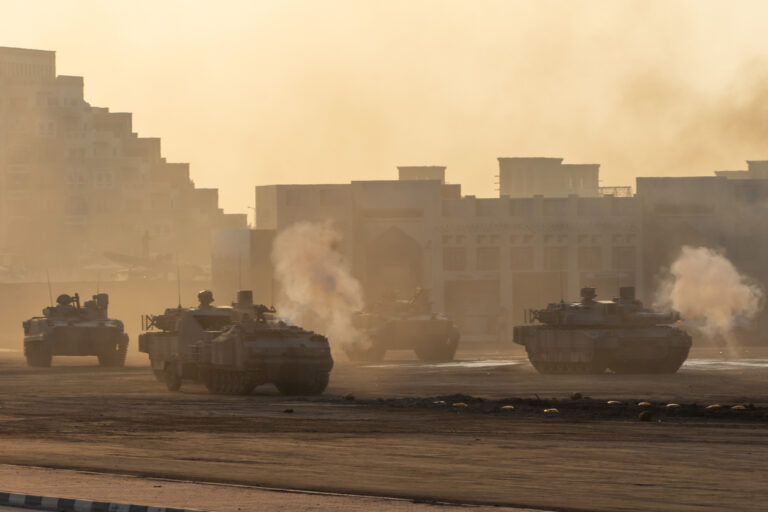
After the collapse of Mario Draghi’s government in July, Italian voters went to the polls to elect a new parliament on September 25. The elections were the first to be held following the constitutional referendum in September 2020 which reduced the number of deputies and senators by half, from 630 to 315 and 400 to 200 respectively. The right-wing coalition spearheaded by the ‘Brothers of Italy’ (FdI) under Giorgia Meloni’s leadership won the election, which saw the lowest turnout in the history of the Italian Republic (less than 64 percent compared to 73 percent in 2018) with around 44 percent of the votes in both chambers. The coalition government will likely be based on an alliance between the Fdl, who took 26 percent of votes, former Interior Minister Matteo Salvini’s ‘League’ (Lega), and former Prime Minister (PM) Silvio Berlusconi’s ‘Forward Italy’ party (Forza Italia or FI). In this blog, we look at the development and foreign policy implications under the centre-right wing alliance and highlight three policy areas that seem of importance to the new government.
The voters’ preferences as reflected in the polls did not shift much over the summer, the Fdl had been projected to be the biggest party, with the Democratic Party (PD) a close second. While the major centre-left parties had been unable to form a coalition, the centre-right is emerging from the elections as a winner thanks to the alliance formed between Meloni, Berlusconi, and Salvini. If these parties are indeed successful in their coalition negotiations, how might Italy’s approach to international development cooperation change?
Where are we at? Italy’s current role
Firstly, let’s briefly look at Italy’s current role as a donor and its priorities on international development. As the OECD Development Assistance Committee (DAC)’s seventh largest donor in absolute terms, Italy is also an international development heavyweight, which is in line with their economic importance as a G7 country. Its official development assistance (ODA) contribution is somewhat small in relative terms with 0.28 percent of GNI spent in 2021, but it has contributed more last year than in previous years (0.22 percent of GNI in 2020 and 2019), as Italy supported other countries with their COVID-19 response, in particular during its presidency of the G20 last year.
According to CGD’s Commitment to Development Index, which ranks 40 of the world’s most powerful countries on their dedication to policies that affect people living in poorer countries, Italy does well on its environmental and investment policies which have international spill-over effects to other countries. It is also contributes significantly to peacekeeping operations and provides vessels to global sea lanes protection as well as ratifying all major international security treaties. Italy has long played an active role in supporting more sustainable agriculture and food security, especially given its role as the host of the UN Food and Agriculture Organization headquarters (FAO) in Rome. Italy’s global leadership in combating food insecurity has become increasingly relevant due to the ongoing climate crisis, the impacts of the Russian invasion of Ukraine, and the severe drought across the Horn of Africa.
These compounded crises will form the backdrop against which the new government will form it’s approach to development. In the run up to the snap election, Italian development priorities were guided by its a three-year ‘Programming and Policy Planning Document.’ This sets out the strategic focus of development cooperation for 2021-2023 and confirms Italy’s focus on the African continent; mitigating the root causes of migration and displacement; and the sectors of health, education, agriculture, food security, nutrition, and environmental protection. Italy has also shown itself to be a major supporter of the multilateral system, in particular for global health. In recent years, Italy has provided major contributions to Gavi, the Vaccine Alliance and the Global Fund to Fight AIDS, Tuberculosis and Malaria (Global Fund), as well as is a strong supporter of global COVID-19 support, contributing to the Access to COVID-19 Tools Accelerator (ACT-A) and the Coalition for Epidemic Preparedness Innovations (CEPI).
What can we expect from a Meloni government?
In examining the political control of the new centre-right coalition government, the latest data suggest the coalition will comprise 112 senators (out of 200 seats) and 235 deputies (out of 400 seats) in the new parliament. If the coalition holds, it will have the capacity to govern the country with relative political stability until the next national election in five years, although it will lack the strength to carry out constitutional reforms—for which two thirds of the seats are needed in both chambers. Giorgia Meloni will oversee this new coalition government as prime minister, the first woman to hold this role in the history of the Italian Republic. The team of ministers will be announced very shortly, and the two chambers of the parliament will convene for the first time on October 13, setting the stage for discussions around amendments to the current Budget Law 2022-2026 which the FdI voted against in both chambers in December 2021. The Budget Law would increase ODA trajectory from US$6 billion in 2021 to US$7.4 billion in 2026. The centre-right coalition now has the power to change the budget and will likely do so, but has also expressed interest in close cooperation with the outgoing government in this transitional phase. Following on from the election, the new government will present a proposal to parliament for the next Budget Law by October 20. Both chambers of the parliament will then have time to amend it and approve it by December 31. The negotiations will be tough, and the government will likely face concerns from Civil Society Organizations (CSOs), who are warning against a reduction of resources allocated to the development cooperation portfolio.
While the future of Italian international development policy remains uncertain, the details may rest on the new government’s appointment of the next Vice Minister of Foreign Affairs and International Cooperation, who oversees the ODA budget as well as the development of the three annual programming guidelines. This appointment may be announced by the end of the month, following the swearing in of the new prime minister and ministers. In addition, the coalition’s action when called to confirm or scale down the commitments made to core multilateral organizations (including Global Fund and ACT-A) by former Prime Minister Draghi will reveal a lot about the new government’s priority setting.
The party manifestos of the three key coalition parties help us to better map what the future direction of the Italian development cooperation might be. Although development cooperation did not play a big role in any of them, all three parties want Italy to be more powerful on the international stage and are in favor of a more active foreign policy. Unlike Lega, the FdI and FI’s international sections of their manifestos are scarce on detail. However, all three provide a strong commitment to the transatlantic alliance and NATO. In terms of regions, all three unsurprisingly highlight the Mediterranean as a major focus area. With this commitment to more engagement in the neighborhood comes the promise to do more against “illegal” immigration, a priority for all three parties. With regards to the current energy and climate crisis, the alliance favors more investment into renewables and a move towards nuclear energy, which would be a first in Italy since the referendum that banned it in the mid-1980s after the Chernobyl disaster. The core takeaways from each manifesto are as follows:
Giorgia Meloni’s FdI manifesto:
- The Mediterranean and migration is a major focus area. Meloni said previously that “the best way to halt the arrivals would be to reach a deal with Libya,” similar to the EU-Turkey deal struck back in 2016.
- In 2019, Italy was the first major European country to become part of China’s Belt and Road Initiative. Meloni has stated that she wants to end this partnership which is seen as a commitment to Italy’s more traditional allies in Europe and across the pond.
- There is the potential for less investment in family planning given the FdI’s pro-life views and the fact that they have made access to abortions more difficult in some regions where the FdI is in power.
Matteo Salvini’s Lega manifesto:
- While their focus is much more nationalistic, the manifesto sets up a surprisingly active role on an international stage. It calls on Italy to be an active negotiator and mediator in the Balkans and between Armenia and Azerbaijan. It also calls for ongoing support for the UN and engagement in the Indo-Pacific region.
- Similarly to the Fdl manifesto, it advocates for migration agreements with all non-EU countries across the Mediterranean to “take back illegal migrants.”
- There is an emphasis on strengthening Italy’s relationship with Turkey, aiming for expanded foreign policy beyond the EU.
- There is also a dedicated subchapter to their vision of international development cooperation. While it doesn’t specify much about future ODA levels, it calls for more integration of the private sector and more long-term partnerships with civil society, highlighting the value of co-programming with non-state entities and the role of the private sector.
Silvio Berlusconi’s Forza Italy manifesto:
- The party is in favor of a change of EU treaties to abandon the unanimity principle on foreign policy.
- Like their counterparts, there is the strong potential for more active security policy and military cooperation with countries in North Africa and the Horn of Africa with the aim of “stemming the flow of migrants to Europe.”
- The call for a ‘Marshall Plan’ for Africa, explicitly naming development assistance as a core component.
- An increased collaboration with lower- and lower-middle income countries and increased avenues of collaboration through multilateral organizations and private sector organizations.
Read the full blog here.
The blog was first posted on the CGD website.
Authors: Anita Käppeli (CGD), Adam Jennison (SEEK Development) and Daniele Fattibene (ETTG)
Photo by Element5 Digital on Unsplash.
The views are those of the authors and not necessarily those of ETTG.



